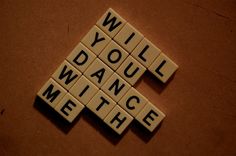The text is below the video…
“Will you dance?” Sunday Sermon. 6/7/20. Alan Neale.
Trinity Church, Newport, RI
Genesis 1:1-3 “God created the heavens and the earth, 2… and the spirit of God swept over void and darkness. 3 Then God said…”
For centuries theologians and Bible scholars have seen in these opening verses of Scripture the Trinity… but more than that the Trinity at work in removing a loathsome chaos and creating a beautiful rich and diverse order.
Years ago I shared this infamous definition of cricket on another Trinity Sunday…
You have two sides, one out in the field and one in, in the field. Each man that’s in the side that’s in goes out, and when he’s out he comes in and the next man goes in until he’s out. When they are all out, the side that’s out comes in and the side that’s been in goes out and tries to get those coming in, out.
Sometimes you get men still in and not out. When a man goes out to go in, the men who are out try to get him out, and when he is out he goes in and the next man in goes out and goes in.
There are two men called umpires who stay out all the time and they decide when the men who are in are out. When both sides have been in and all the men are out, and both sides have been out twice after all the men have been in, including those who are not out, that is the end of the game!
By the way, within a year a local cricket club was formed and still mystifies its spectators.
The point I made then, and now, is that observing cricket is not enough; observing and reflecting is not enough. To understand best, we engage in the game. Observation, reflection and engagement (ORE, worthy of mining and discovery).
And so, my friends, it is with the doctrine of the Holy Trinity (to adapt Winston Churchill’s definition of Russia – “… a riddle wrapped in a mystery inside an enigma.”
In Genesis 1 (the very opening words of Scripture) the priestly writer invites us to observe and reflect but then also to engage in this divine work of chaos removal and inspired creation.
There is no explicit, defined statement of Trinitarian doctrine in Holy Scripture and yet we observe and reflect that the Trinitarian shape is stamped throughout its pages;
in Augustinian mode we see the Trinity die cast throughout our humanity, throughout our world.
I relish the feast of Trinity – it celebrates vibrant kaleidoscopic diversity rather than dull monochrome uniformity; it redeems the concept of process and committees for the Trinity is, in a sense, the primal committee making right decisions unanimously.
In such committee process no longer the cry of fatigue and despair, “It is sure I carried nothing into this meeting and I surely carry nothing out.”
But above all I relish this Feast Day, the Patronal Festival of this Church, because it calls us to engage. “To think that simply going to church will make you a Christian, is like thinking that simply lying down in a garage will make you a car.” We are created, called, co-opted to participate in the Christian life and in the life of the Church – by service, by giving, by study, by prayer and by worship….. listen to today’s Collect “give us grace to… acknowledge the Trinity and worship, worship, worship the Unity”.
Many years ago, as a tenth wedding anniversary for my wife, I succumbed and said I would learn to dance – a little. Books didn’t do it….. watching Fred Astaire was just too depressing but…. going to class, participating… that helped (well, helped a little!). In ‘Mere Christianity’ C.S. Lewis wrote “Perhaps this is the most important difference between Christianity and all other religions: that in Christianity God is not a static thing—not even a person—but a dynamic, pulsating activity, a life, almost a kind of drama. Almost, if you will not think me irreverent, a kind of dance. The union between the Father and the Son is such a live concrete thing that this union itself is also a Person.”
‘Alice in Wonderland, Book X’ Lewis Carroll writes “Then turn not pale, beloved snail, but come and join the dance. Will you, won’t you, will you, won’t you, will you join the dance? Will you, won’t you, will you, won’t you, won’t you join the dance?” – discarding vulnerability and risk, aroused by love to participate, won’t you join the dance. The Persian poet Rumi wrote: “Put your books away; take down your instruments and play”.
The 1425 Rublev Icon of the Trinity invites, summons, bids us to participate.
We are beckoned, “Come and play, come and dance in the life of the Trinity”.
Will you, or won’t you. You will, right? AMEN.

